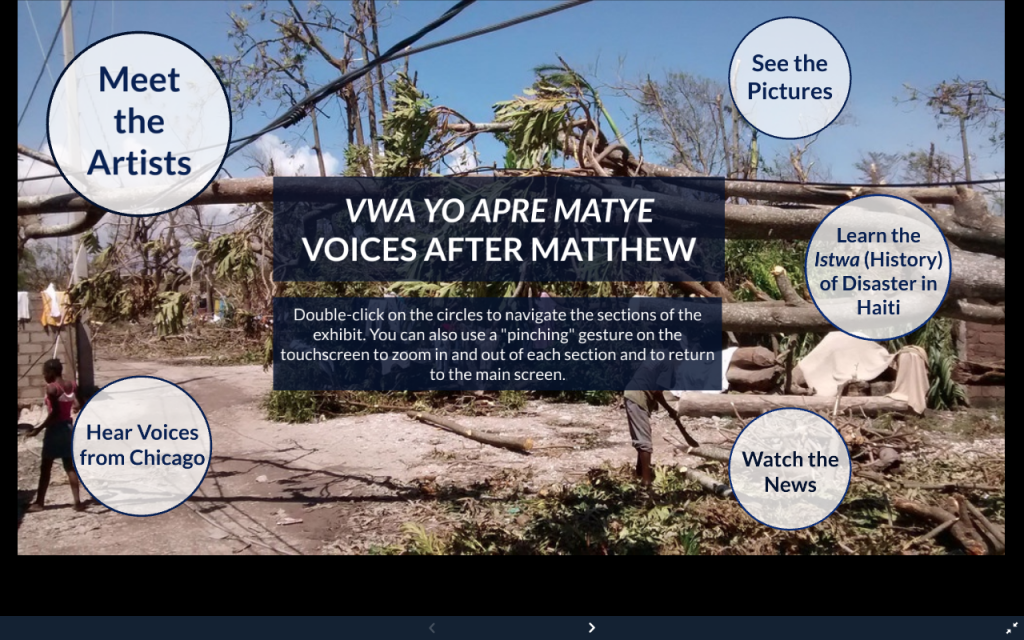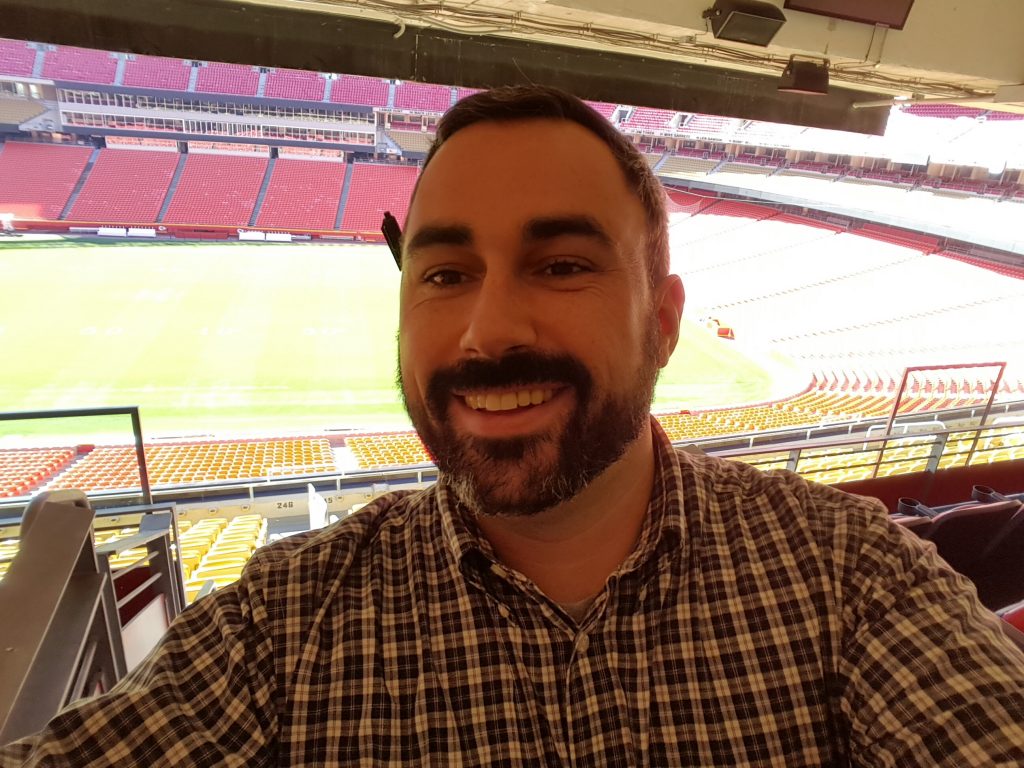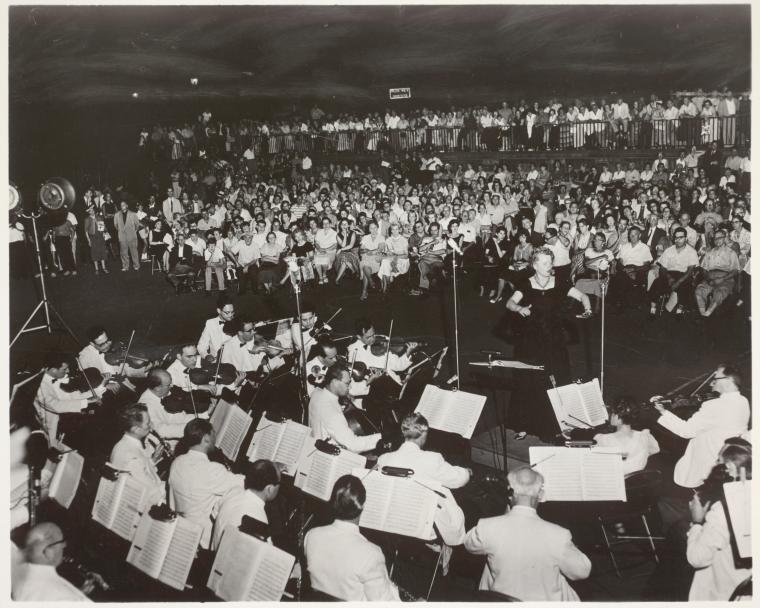Trash to Treasure
How My Training in History Translated to Working in Sustainability
“This room looks like an episode of Hoarders.” This was the only response I could manage as I surveyed the growing piles of mattress pads, clothing, lamps, pots and pans, books, and food. I had walked into the sorting room of one of our signature programs in the Office of Sustainability at Loyola University. Think Green and Give provides undergraduate students living in the dorms an opportunity to donate unwanted items before they move out. We sort the donations, weigh them, bag them, and send them off to local charities. Now a team of undergraduate students and I were going to sort it all. In five days. It’s a big job, but it gets needed items to charities and keeps all of that stuff out of a landfill.
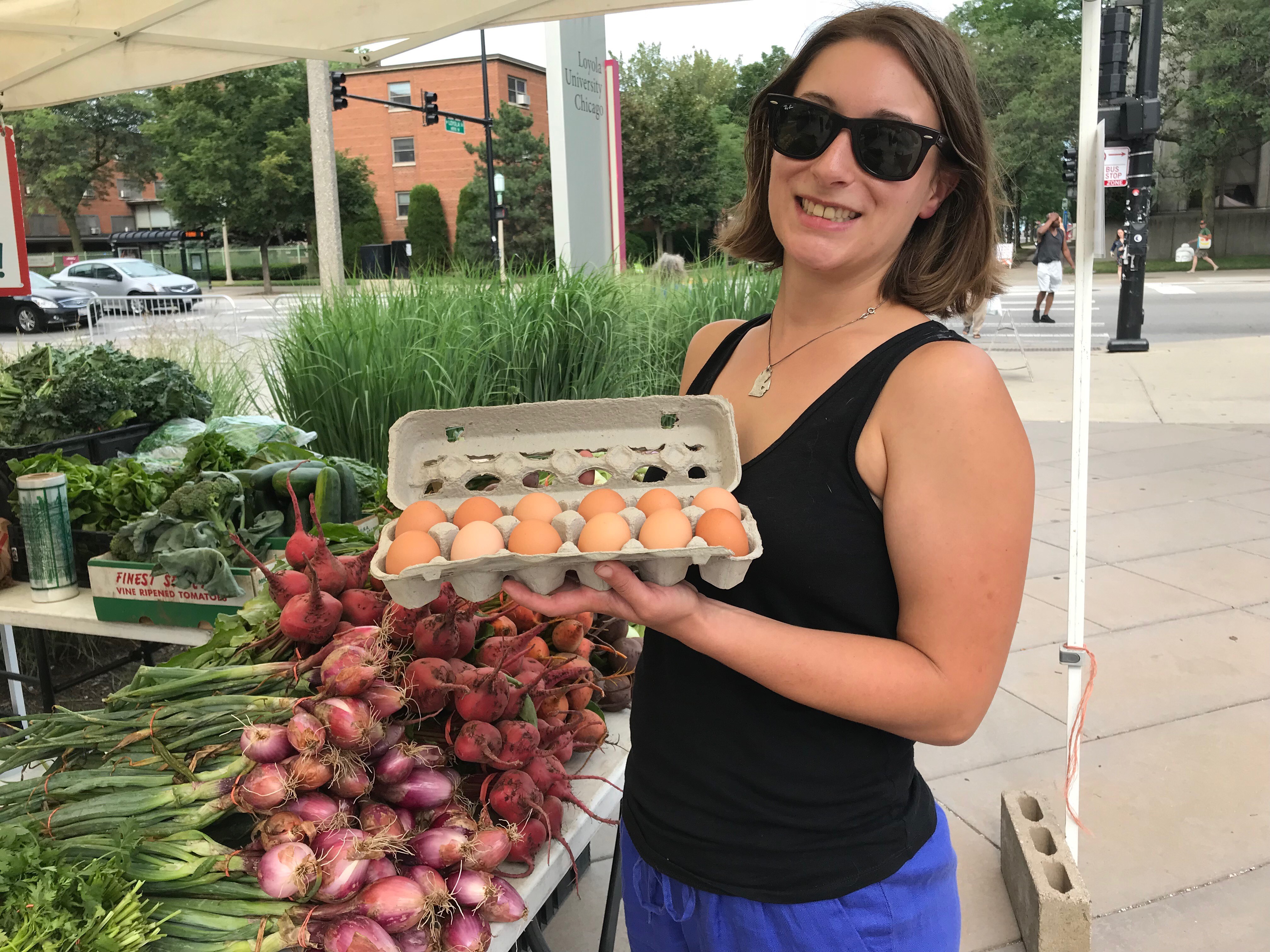
Chelsea Denault proudly shows off her purchase from the farmers market vegetable and egg vendor, John Patyk of Patyk Farms. Emily O’Connor
While some people might not think twice about what they throw in the trash, I think about it constantly. My dissertation explores the looming “trash crisis” of the late 1960s and early 70s and how it shaped individual and municipal responses to waste. Cities across the country suddenly found themselves running out of space in landfills, forcing them to pay higher prices for dwindling space and transportation to landfills farther afield, or to search for alternative disposal methods. This “crisis” of space forced people—city officials and residents—to think more critically about their consumption patterns and about reducing waste, and to reconsider the potential usefulness of waste. In Detroit, for example, the Public Works Department saw burning waste as the possible solution to other issues associated with the generation of electricity during the Energy Crisis. It was this interest in trash that led me to become a graduate assistant in Loyola’s Office of Sustainability. Examining how trash and what we do with it has changed over time allows me to consider sustainability today within a broader context and to evaluate the strategies and methods our current culture applies to sustainability problems more critically.
Since joining the office just under a year ago, I’ve taken on a number of projects and initiatives like Think Green and Give, all of which have required me to rely on my historical training. My experiences have convinced me that, rather than being foils to each other, sustainability and history go hand-in-hand: in order to think critically and plan for our future and the future of our planet, we need history to inform our course forward and hearten us with the hope of successful individual and collective action in the past. Every day I use my historical training and knowledge to excel in my new role shaping university policy and training students to be the sustainability professionals of tomorrow.
Examining how trash and what we do with it has changed over time allows me to consider sustainability today within a broader context.
As part of my job, I co-manage our Sustainability Interns program that brings together undergraduate students with different academic backgrounds to solve sustainability problems both on campus and beyond. To manage this team of 15 interns, I constantly rely on my training in the classroom. As an instructor, I learned how to communicate expectations effectively, field students’ ideas and questions, give constructive feedback, and motivate students to think critically and creatively to answer questions. All of these skills served me well as the intern manager as I helped students identify issues on campus and imagine solutions. My training as a history instructor in a formal classroom setting translated well to being an effective facilitator and mentor to our intern team.
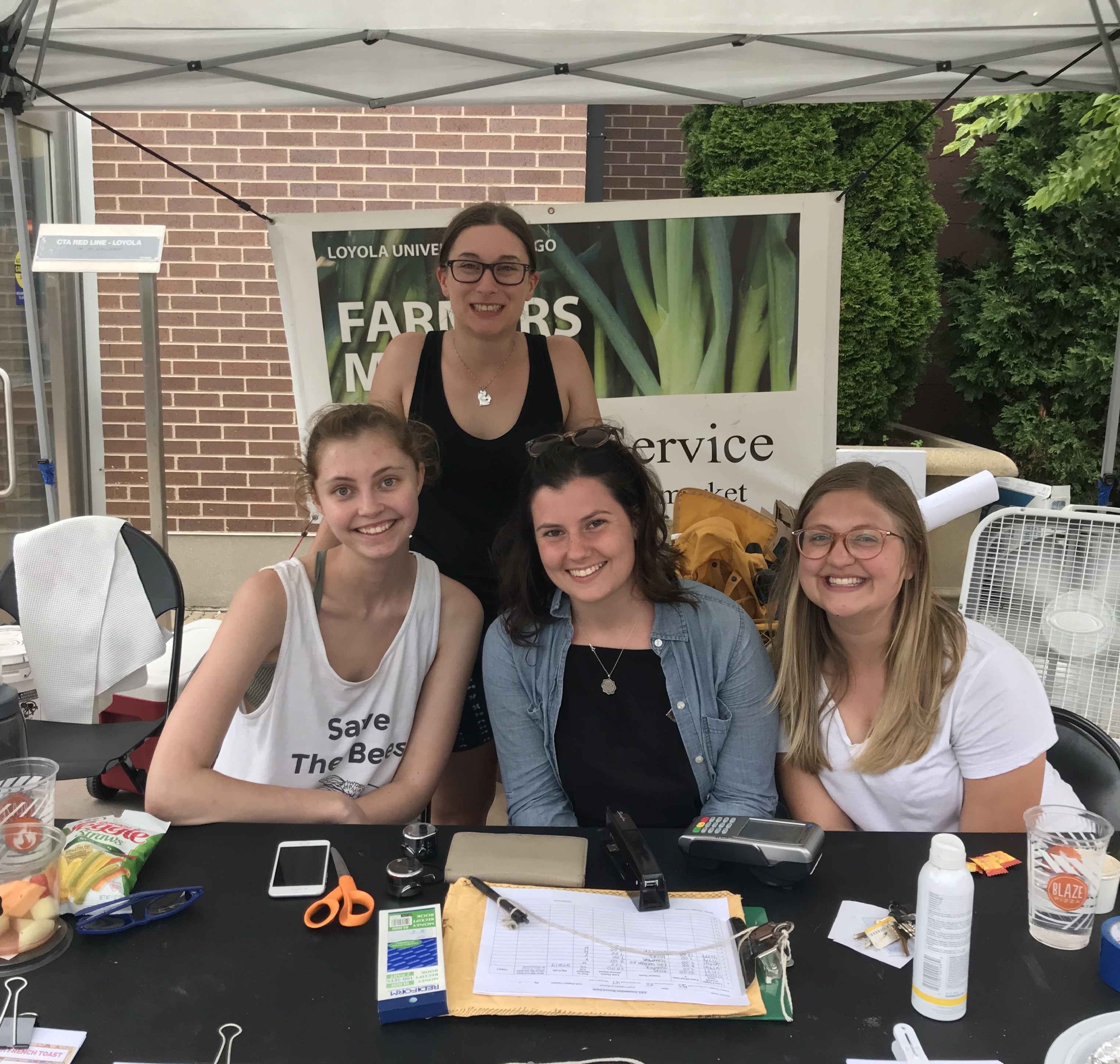
Chelsea Denault with the farmers market intern team. “I’m very grateful that I have the opportunity to mentor these smart and passionate young ladies (and share random bits of historical knowledge when they least expect it!),” writes Denault. Laura Orrico
Some projects have drawn on my written communication skills more than others. In the spring, I contributed to a report—Sustainability Across the Curriculum—which seeks to encourage university faculty to integrate sustainability—broadly considered, across environment, economy, and society—into their teaching. Completing the report required thoughtful and effective communication while balancing multiple stakeholders, a key skill from my training as a public historian.
Working with several offices from across the campus, I wrote a report that recommended and detailed various ways faculty could integrate topics related to sustainability in their teaching or in opportunities outside the classroom. To accomplish this, I drew on my historical knowledge and experience as an instructor. I first set out to demonstrate the relationship between the university’s core curriculum, which relies heavily on the Jesuit tradition of the humanities and other forms of cultural, social, and philosophical knowledge, and the "Sustainability Learning Objectives" defined by the Provost’s Office. I grounded this comparison in the shared commitment to social justice, which is central to my own values as a historian. I also reflected on my time in the classroom and recommended strategies that require little effort on the part of faculty members or offer other benefits, like a course release, for a more involved commitment to integrating sustainability into their teaching. The report made its way to the university’s Sustainability Committee comprised of various deans, vice presidents, and other administrators, who approved it.
My year working in sustainability has shown me that our mission is the same as in history: to use our knowledge and skills to make the world better for people.
I also rely on my research and historical knowledge in my role as the manager of our farmers market, which brings together ten vendors, live music, and community partners every Monday and offers incentives for food insecure families to earn match funding for every dollar they spend at the market. As a historian, I hold a deep sense of past (and continuing) de facto and de jure injustices that particularly disadvantage people of color, low income individuals, women, and members of the LGBTQ+ community. I understand the context behind the hard-won gains of programs like Food Stamps, WIC, and SNAP. I see in my own dissertation how the basic needs of the community are disregarded in the name of development. As a result, I take the work that we do at the market—providing healthy food to people who need it most and fostering a space for the community to safely gather—very seriously. I have used my knowledge to advocate for increased grant funding, more flexible market hours, and more programming and amenities such as weekly kids activities and improved seating to encourage people to gather.
My training in history has provided me with a set of highly adaptable skills and knowledge that allow me to excel at my work. While I may lack the scientific knowledge of some of my colleagues in sustainability, I make up for it with the skills I’ve developed in my graduate training. My year working in sustainability has shown me that our mission is the same as in history: to use our knowledge and skills to make the world better for people. Whether we accomplish that through reducing our waste or combing archives to expose past injustices, we work toward the same goal.
Chelsea Denault is winner of the 2018 AHA Summer Blog Contest and a doctoral candidate in public history and US history at Loyola University Chicago. Chelsea earned her BA in history from Albion College and has worked as a public history professional for various museums, historic preservation organizations, and archives in Chicago. Her dissertation, “‘An Environmental Sleight of Hand:’ Trash, Technology, and Activism in Detroit, 1970–1989,” considers how anxieties about waste, energy, the environment, and urban decline led to the construction of a trash incinerator in Detroit and sparked a grassroots movement against the facility.
Tags: Perspectives Daily Perspectives Summer Columns Career Diversity for Historians Environmental History
Comment
Please read our commenting and letters policy before submitting.







